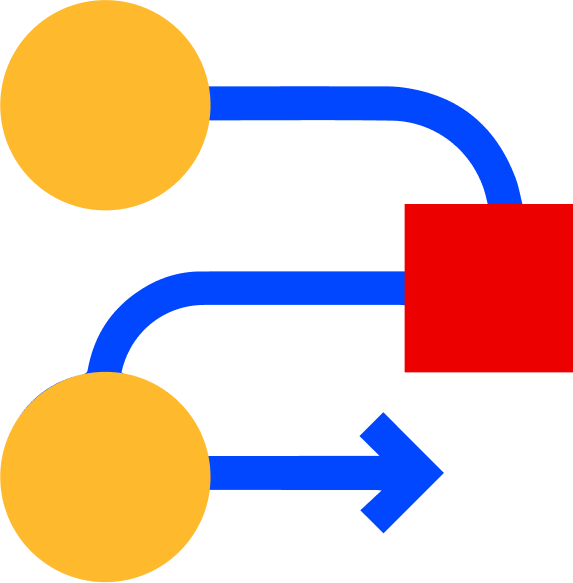Integrated Legal Hold: Why Fragmented Workflows Are No Longer Sustainable


Spacelift reports show that worldwide individuals and enterprises create about 328.77 million terabytes daily. This number is only growing; as of 2025, 90% of all global data was created within the past two years.
Because of these figures, businesses store and use more data than ever before. The legal hold process is more challenging as representatives must review and analyze increasing amounts of digital information with each FOIA request.
Luckily, there's hope! Fragmented workflows can make in-house counsel and litigation holds feel impossible, but integrated dashboards make the process quick and simple.
Here, we'll cover some issues with fragmented workflows and discuss why they're no longer sustainable for corporate legal teams and LSPs. Read on to learn the risks of siloed hold processes and the efficiency benefits of managing holds within a single platform.
The Problems With Fragmented Workflows
A fragmented workflow happens when information is scattered across a workplace. Data might be stored within various applications, making it difficult for users to find specific information. Some of this data may only be accessible to those in specific departments or those who have reached a higher tier of authorization.
While this sounds reasonable, it comes with several issues. They include:
- Unnecessary maintenance and support needs that boost IT expenses
- Security risks because of multiple endpoints and more opportunities for breaches
- Difficulty collaborating with other departments to find and review data
- Poor decision-making due to a lack of holistic information for any one person
- The need for manual data entry that leads to costly human error
When it comes to the legal hold process, these problems only increase. Data siloes develop, meaning that individuals and departments only work toward their own internal goals and ignore broader interdepartmental ones.
Sadly, legal holds require collaboration because of:
- Short timelines dictated by Freedom of Information Act (FOIA) requests
- Costs associated with data loss and difficulty finding it
- Inconsistent processes for storing and managing information being held
- The lack of uniform processes when preserving relevant data
- An inability to easily offer relevant litigation information to requesters within the requested formatting parameters
This leads to an extremely inefficient and ineffective approach to data preservation, and siloed legal holds create many specific challenges for corporate legal representatives, LSPs, and public records employees.
The Risks of Siloed Legal Holds
One of the main issues with siloed legal holds is inconsistency.
Different departments may hold their data differently and access it with their own methods. Two departments may not even use the same application to hold and manage stored data. Plus, they may word legal notices inconsistently and cause confusion about the specific preservation obligations of each team.
This can lead to employees and legal representatives undercollecting data. It's easy to gloss over something and neglect to provide relevant information.
Moreover, siloed processes for legal holds often require manual work.
This leaves a lot of room for human error, which can be devastating for your organization. According to TST Technology, even a small error can cost companies $3.1 trillion!
Beyond that, manual processes and the inconsistent preservation that comes with them make it easier to accidentally alter data. This goes against the legal holds process. The whole purpose is to hold documents and files as they are for future review and use.
They also make several actions challenging, such as:
- Sending out notices
- Tracking responses
- Coordinating with others
The problem only increases when legal holds overlap. Sometimes, an enterprise may receive multiple FOIA requests simultaneously. When multiple holds are in place across departments, it becomes challenging to manage custodians and maintain accurate data preservation.
Luckily, experts who are up to date on legal technology trends have considered this issue at length. Integrated holds technology has become increasingly available, and the best developers have made AI-powered tools that streamline legal operations.
Managing Holds Effectively: Integrated Legal Solutions
Syncing all your data into one integrated dashboard is a great way to manage it more effectively. Professionals across all departments and offices can get onto the dashboard and see the same information in one place.
The best software available offers tool connectors that link multiple data sources together. Sources of information may include:
- Email communications
- Written Word documents, PDFs, and EPUBs
- Audio files
- Videos (including MP4 and WAV formats)
- Images and the text embedded within them
This may be scattered across multiple applications like:
- Google (Gmail, Drive, etc)
- Dropbox
- Slack
- Teams
A flexible, open API makes it easy to integrate data from your custom applications, too!
Unstructured data management is easier when you can put it into one cloud-based application. All relevant parties will be able to see data within a comprehensive dashboard, making compliance and oversight both easier.
You can also manage notifications within just one interface. This means:
- Drafting messages with the help of AI
- Scheduling posts and messages
- Sending messages immediately
- Tracking notifications
Quick, efficient communication has never been simpler!
What Sets Onna Apart
To reap these advantages, it's critical to select the right legal holds software provider. Onna, a Reveal technology, offers a wide range of features such as:
- A user-friendly interface to streamline data management
- Easy custodian management
- Automatic data tagging based on keywords and phrases
- Easy information search
- Configurable data management
- Smart data processing that changes unstructured data into searchable information with machine learning tools
- User activity monitoring
Our workflow transformation tools are multifaceted and offer several benefits. You can curate data based on what you need and don't need. Segmenting information is easy, and you can tag data to create sets. Plus, it's made with secure encryption features that consider OAuth protocols, IS027001 compliance, and SOC2 Type II attestation.
Begin Streamlining Legal Processes
Now that you know why fragmented workflows don't work in the legal hold process, it's time to invest in a tool that will help you maintain compliance while saving time and money.
Onna's data management solutions help enterprises manage both complex and unstructured data. You can store and review it in one location before sharing it in the all-in-one interface.
We're excited to show you our capabilities, so contact us to learn more about our technology and schedule a demo!
 eDiscovery
eDiscovery Collections
Collections Processing
Processing Early Case Assessment
Early Case Assessment Information Governance
Information Governance Data Migration
Data Migration Data Archiving
Data Archiving Platform Services
Platform Services Connectors
Connectors Platform API
Platform API Pricing Plans
Pricing Plans Professional Services
Professional Services Technical Support
Technical Support Partnerships
Partnerships About us
About us Careers
Careers Newsroom
Newsroom Reveal
Reveal Logikcull by Reveal
Logikcull by Reveal Events
Events Webinars
Webinars OnnAcademy
OnnAcademy Blog
Blog Content Library
Content Library Trust Center
Trust Center Developer Hub
Developer Hub